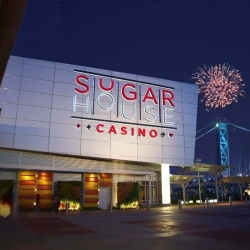
SugarHouse’s New Jersey skin made Golden Nugget #1 in the online casino market, because it offered online slots available in no other US licensed site.
As details emerge about the Pennsylvania online gambling policies, it is becoming apparent that casino and poker sites will face severe restrictions. The online gaming industry of Pennsylvania will face high taxes, limited game options, and little room for growth from third-party operators.
Pennsylvania’s neighbor, New Jersey, instituted a much different iGaming model with some degree of success. The Division of Gaming Enforcement allowed third-party operators to launch skins of the main Atlantic City casinos’ sites, which allowed for a wide variety of gaming options.
Contrasts between the two framework have some proponents of Pennsylvania online casinos and cardrooms anxious about the results. At present, the licensing process for license holders is underway, with the licensing of software providers and third-party operators coming in subsequent months.
The entire process should be finished by the end of summer.
High Taxes on Online Slots
The first hurdle is a high tax rate on online gambling. Online slots, which generate as much as 70% of an online casino’s revenues in some cases, face a 54% tax rate. The state will collect the lion’s share of revenues from operators’ sites.
Online table games and poker rake will be taxed at a more nominal 16%. Once again, if the Pennsylvania model is similar to New Jersey’s Internet gaming portals, then iPoker is going to lag behind the online casino revenues.
As a comparison, New Jersey online casinos and poker sites faced a 8% tax rate on gross revenues. An additional 1.25% “community investment alternative tax” was imposed, but the resultant 9.25% tax rate is significantly lower than Pennsylvania’s taxes.
Pennsylvania’s High Taxes
Pennsylvania is known to have high taxes on gaming. While Nevada has a much bigger land-based casino industry, Pennsylvania collects more taxes on land-based gaming than any US state but Nevada. When one compares the 170+ land-based gaming venues in California, for example, one sees that Pennsylvania’s land-based gaming taxes are immense.
That has not stopped the growth of a health land-based casino and racino industry. At the same time, Las Vegas Sands Corp. — which owns the state’s highest revenue casino, Bethlehem Sands Resort & Casino — has considered selling the operation several times in the past few years. Labor issues and high taxes appeared to be the issues that caused LVS to consider a sale.
Restrictions on Casino Skins
A high tax rate is not the only issue. All “skins” have to be launched as sub-domains of the license holder’s online casino and poker site. Skins are the casino homepage that a third-party gaming provider operators. These can be valuable additions to a site, offering players more variety.
That will not be the case in Pennsylvania. While the number of skins will not be limited, all casino skins will have to display the license of the main licensee, while limiting itself to the game selection of the main license holder. Players will have little incentive to give such sub-domains a try, which in turn means such operators are not likely to be interested in Pennsylvania gaming.
SugarHouse NJ: An Example
In New Jersey, skins are allowed to launch their own gaming portal and sign licensing deals with a variety of software providers. Golden Nugget Atlantic City signed a deal with SugarHouse Philadelphia to launch a New Jersey online casino as a skin of Golden Nugget. SugarHouse had the foresight to sign deals with top slot manufacturers like IGT, Bally Gaming, WMS Interactive, and Konami.
For that reason, SugarHouse/Golden Nugget became the number one online casino operator in New Jersey, beating out Borgata Online within a few months of launch. By offering more and better games, SugarHouse gained a big customer base. No such casino sites will be possible in Pennsylvania.
Online Gaming Banned from Land Casinos
One curious decision also will hamstring Pennsylvania casino operators. Online casino and poker betting will not be allowed to take place on brick-and-mortar casino grounds. This keeps casinos from signing up players who visit their resorts. It also keeps casinos from allowing players to test-drive their online casino and poker products while visiting the main casino.
The online gambling ban from land-based casinos will restrict casino and racino operators from increasing their player database in ways they might otherwise build brand loyalty. Along with the other measures, Pennsyvlania online gambling is going to struggle to build the kind of thriving industry it otherwise could.
